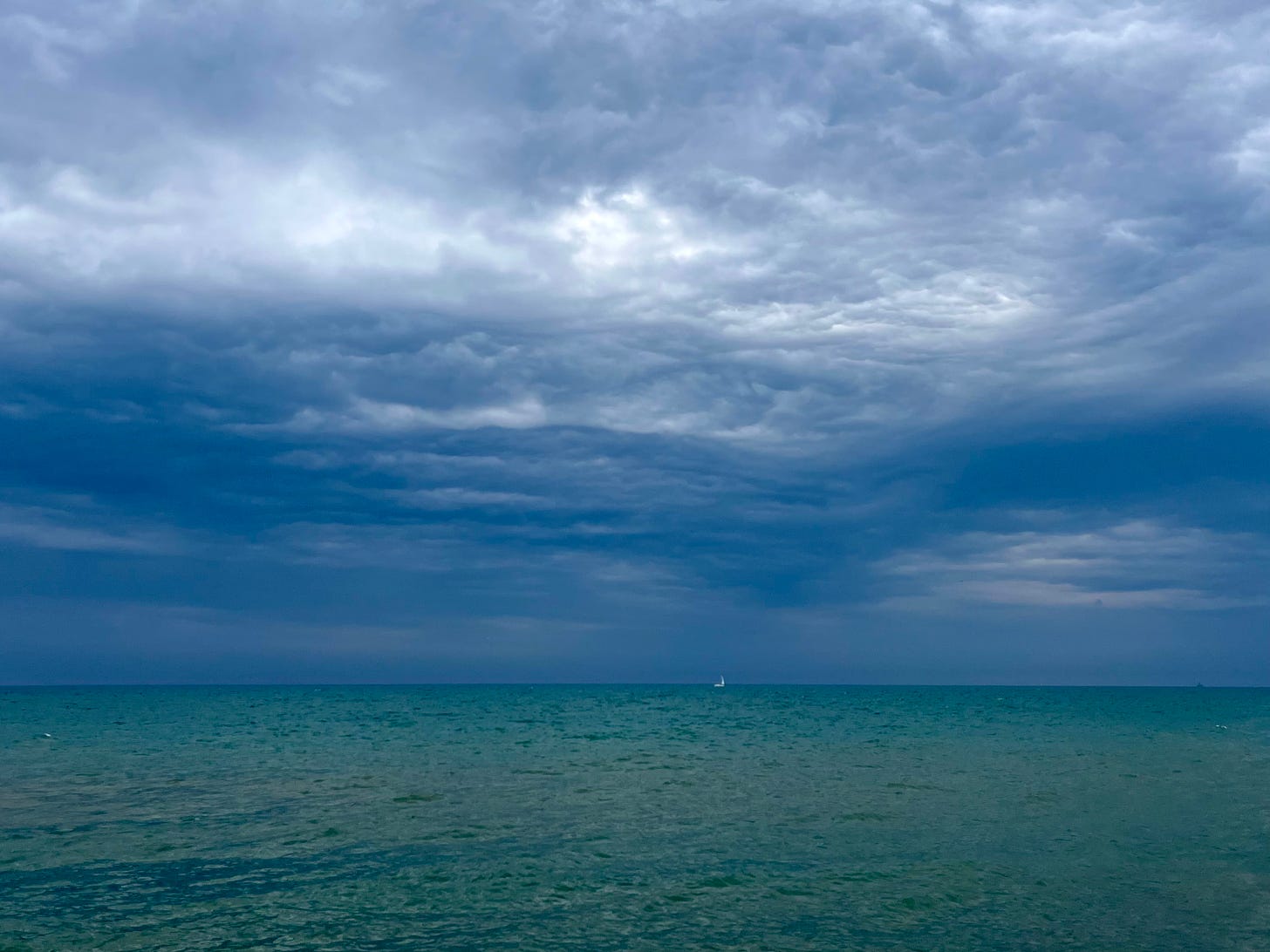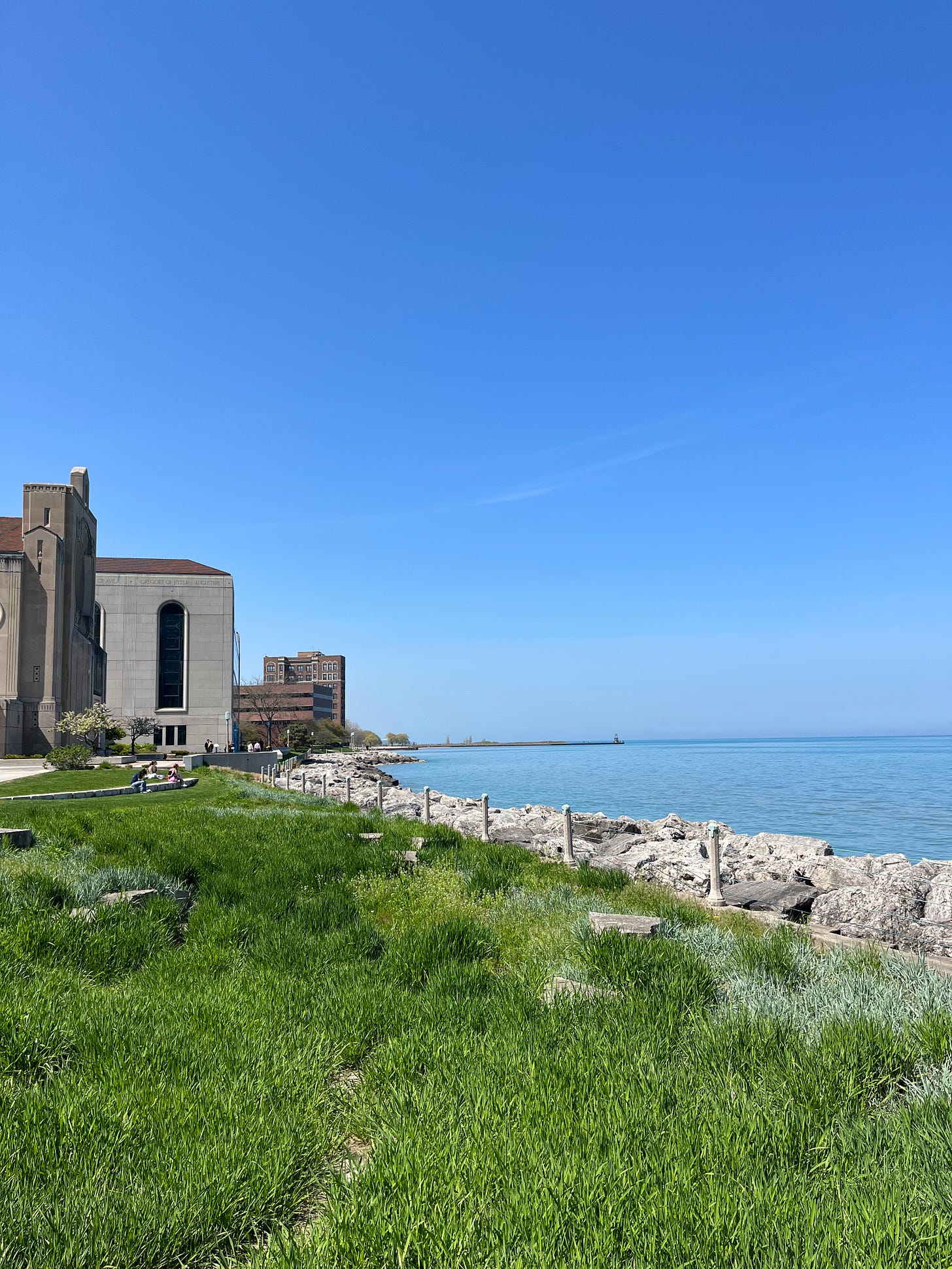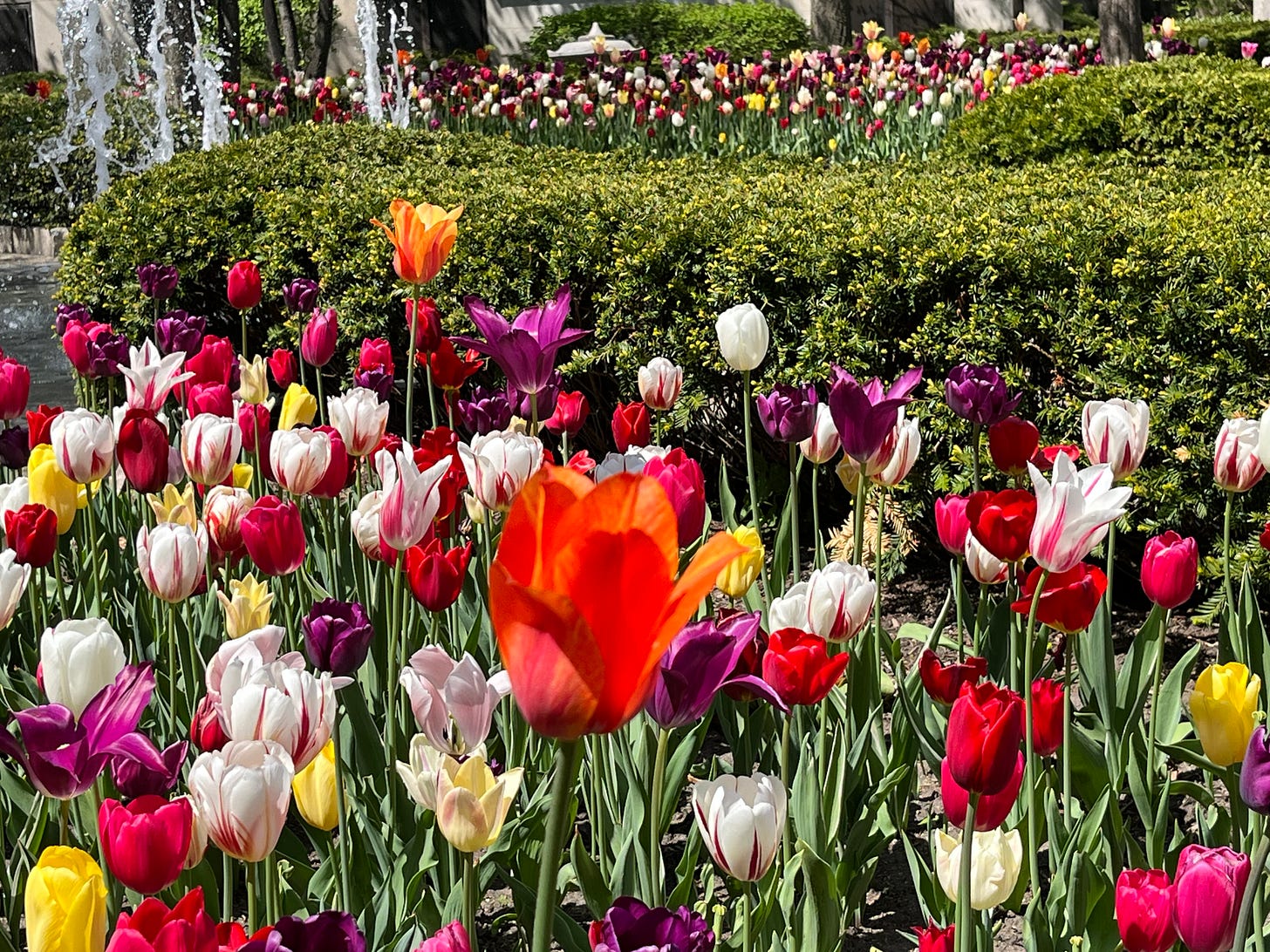Mothering
Being a Mother, Not Being a Mother, Being Estranged from Mothers, and Mothering Oneself.
I will never experience Mother’s Day as a mother, but I have loved many children, and helped to raise many children, and supported many mothers as a nanny. I have dedicated years of my life and thousands of hours of energy to loving and raising children, treating children with respect, and being brought to my edge by children (and their parents).
Despite this work, no one will ever call me a mother, because I will never birth a child.
What does it mean to be a mother? What does it mean to mother a child? Is mothering inextricably linked to birthing a child, as we are taught to believe? Is a mother’s child any less their child if they did not originate inside that mother’s womb? Or if they didn’t drink milk from the mother’s body? Or if they have not torn that mother apart? Or if the child’s mother takes some space? Or if the child’s mother has boundaries? Or if the child’s mother teaches the child through action that sacrifice is the only way?
Please don’t tell me I don’t know what mothering is.
Please don’t assume that you know what mothering is, for someone else.
These questions and statements, these ideas about mothering, invoke feelings. It’s impossible for us not to feel feelings, as mothers.
What if I claimed to be a mother because I mothered my mother?
What if I claimed to be a mother despite not claiming “woman”?
What if I claimed to be a mother because the energy I gave to nearly one hundred children over twenty-five years of my life was the mothering type?
Or more than mothering?
More restrained than mothering?
\More sacrificial than mothering, knowing I would never receive the love a mother receives?
Less sacrificial than mothering, knowing I could leave?
Is the best mother the one who sacrifices their whole self?
Is a mother a she?
Does mother equal woman?
Does woman equal mother?
Do you have any kids? Is the question everyone has on their minds. A question always asked out loud, followed by: “That’s okay.”
Followed by: “You’ll find the right person.”
Followed by: “You’re lucky; they’re a handful.”
Followed by: “You’re better off without them.”
What if I answered: “my children were all aborted.”
Followed by: “It was the right choice for me.”
Followed by: “We all should be able to make our own life choices.”
Followed by: “I was too scared I’d turn into my mother, and resent them.”
Followed by: “I know now I would have been a wonderful mother. But I am glad I am not a mother.”
Followed by: “If I spend my whole life mothering myself it will never make up for what I did not receive and will never receive.”
Followed by: “My life is quiet and my own, and I like it that way, and that has nothing to do with what you have chosen, so can we exist without rating each other on a hierarchy based on what we’ve chosen or not chosen?”
One of my favorite people in the world would be a wonderful parent. He is a teacher. He used to talk about how the parents of his students would tell him what a great parent he would be.
Should we all do what we would be great at, simply because we would be great at the thing?
He says: “I take my parenting energy and I give that energy to my students.”
What if we are all given a finite amount of energy in this world and we get to decide what to do with it?
Isn’t that a privilege? To decide?
A right?
Even if he chose to give that energy to himself— it would be his choice. Nothing wrong with that.
I know so many incredible mothers who, in secret, tell themselves they are not incredible mothers. Believe they could be doing more. Doing better.
Mothering is like being an artist. You’re never off the clock. Creativity may call at anytime. Creativity may dart into the street when you’re not looking, or try pot for the first time without your knowledge, or give you the most pathetic heartbreaking look when you’ve lost your temper.
There are many things I wish could have been true for my mother.
That she could have left me with my grandparents for good, guilt-free, if that’s what she needed.
That she could have lived the child-free life she dreamed, instead of feeling obligated to have a child.
That she could have understood how much work it would be— understood that, after a certain age, children no longer look to their parent(s) with love, but with a hypercritical eye that, with age, morphs into an embarrassment which creates a gulf. A necessary gulf. That letting go is vital. That children are never exactly who you want them to be, and often not even close.
Bringing a child into this world can be a selfish act. No matter what, it always backfires. Even if it wasn’t selfish or was only a little selfish.
Bringing a child into this world is always a little bit selfish, or else no one would do it.
When I told my mother I needed space, she sent me texts and emails.
“What do you think, you should be treated like gold?”
“Don’t you know how much I love you, my sweetest girl?”
“Who the fuck do you think you are?”
“You selfish bitch.”
When I was a child, my mother called me these things:
The worst kid in the world.
Fatso.
Stupid little bitch.
Greedy.
Selfish.
When I was a child I believed everything my mother said.
When I grew up, I still believed everything she said, which is why I needed the space. The space tore her apart because she knew that, with space, I would no longer believe everything she said.
Everyone said: you should call your mom.
Everyone said “you should call your mom” because they didn’t know what the inside of my relationship with my mother looked or felt like. Because my mother was one person with me and another person with everyone else. If I told anyone, they believed her and figured I was lying. There was a whole world built by my mother, like a wall separating me from everyone else. She had been building the world for decades. I was a bad kid. I lied. So, when I told the truth, I was a liar, and my mother was a poor thing, wouldn’t it be so hard to have a child like that?
I was named after my mother’s mother.
Whenever I told my mother how much I loved my grandma she’d tell me: “Your grandma wasn’t a good mom. We had to clean up after her all the time. Once, she passed out in the living-room because she’d done too much heroin, her facer buried in the carpet, wet with vomit. Your aunt and I had to clean it all up.”
This image is so clear to me because the story was repeated more times than I can count. When I lived with my grandparent’s house there was a drawer filled with pills. I was too young to know what the pills were, and by the time I became an addict myself my grandmother didn’t have the drawer anymore.
When I think of my childhood and my mother’s childhood I know this: my mother did the best she could. Whatever scraps of love she could give me; she did.
It wasn’t enough, but she didn’t have enough for herself.
If love was food, we were starving. And she starved, but she gave a lot of her food to me. As much as she could.
When I think of my childhood and my mother’s childhood I know this: I had more. I had less. There is no comparison, really. What’s one to do: calculate the tragedies and place them side by side, like a mathematical equation?
How do we quantify trauma?
Impossible.
Her mother did her best. My mother did my best.
I am no one’s mother.
I have the boundaries neither of them were allowed to have.
I got to make the choice.
I had my first abortion when I was sixteen.
My mother took me to Planned Parenthood.
I had the choice.
My mother told me about the child she aborted before I was born.
“I thought your dad was a good person,” she said.
He wasn’t.
When I met the man I thought was a good person, I didn’t make the same choice she made. I am grateful for that.
Take a breath.
Everyone has something to say about what a mother is, and should be.
I will never be a mother but I understand mothering. What it takes. What is given back.
If you are a mother, I want you to know that whatever you’re doing, it’s good enough.
If you aren’t a mother, I want you to know that whatever you’re doing, it’s good enough.
If you’re separated from your mother, I want you to know that whatever you’re doing, it’s good enough.
If you have lost your mother, I want you to know that whatever you are feeling now will change with time.
None of it is easy, or easier, or harder.
It’s all different.
How can one quantify hardship or ease?
There is no “good mother” or “bad mother.” Both are constructs.
What is “mother” but a kind of construct?
When did things begin to fall on one person’s shoulders rather than many shoulders? When did we learn to claim our children like possessions or status symbols?
I want villages for us all, mothers and not-mothers, mothered and unmothered.
Villages in which we can tend to ourselves and each other.
Take a breath.
Take another breath.
Tell me: what are you feeling and experiencing today?








I'm not a mother either. I've educated hundreds of children (I've also heard all theses phrases like "luckily you've got all these ones all week long to teach :D I don't feel anger, people are simply unaware or awkward). After 40 years old, people definitely stopped asking me all the stuff you know. Now I'm grateful I've finally learned how to mother myself. That's the best gift to myself as a child. Motherhood and childhood have been painful topics for most of my life. But I feel at peace right now, both with my mother's story, my own story as a child, and my adult's story. I wish you to feel as you wish about your own journey. And maybe to give yourself all that you needed (not a unsollicited advice, simply something I also tell myself regularly not to abandon myself). :)
I hope you don't mind a little gentle disagreement, my friend. I know many very good mothers who did not give birth to a child - stepmoms, adoptive moms, aunties (especially in nonwestern cultures).
I also like to think about the noun mother, whose roots are in birthing, and the verb to mother, which is not assoicated with birthing. I think that in your childcare work, and in your more casual interactions with children, you were a very good mother in the sense of the verb. And, like any person who mothers children, you carry that into your broader life.
I think this is genetic and is an evolutionary trait necessary for survival of a species. It is quite common in the natural world for a primate, for example, to adopt the offspring of a mother who has died. This says nothing about gender.
So, I think you should be proud to talk about your abilities and experience in mothering, even if you are not quite comfortable calling yourself a mother.
I'd love to tell you about my experiences with my mother, but I am not as bold as you in sharing my personal life. Perhaps we can do that another time.
Happy Mothers Day!